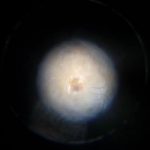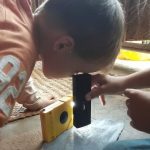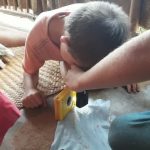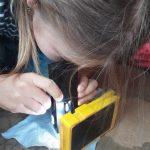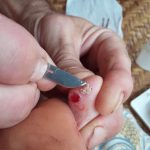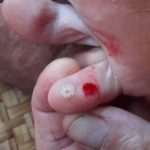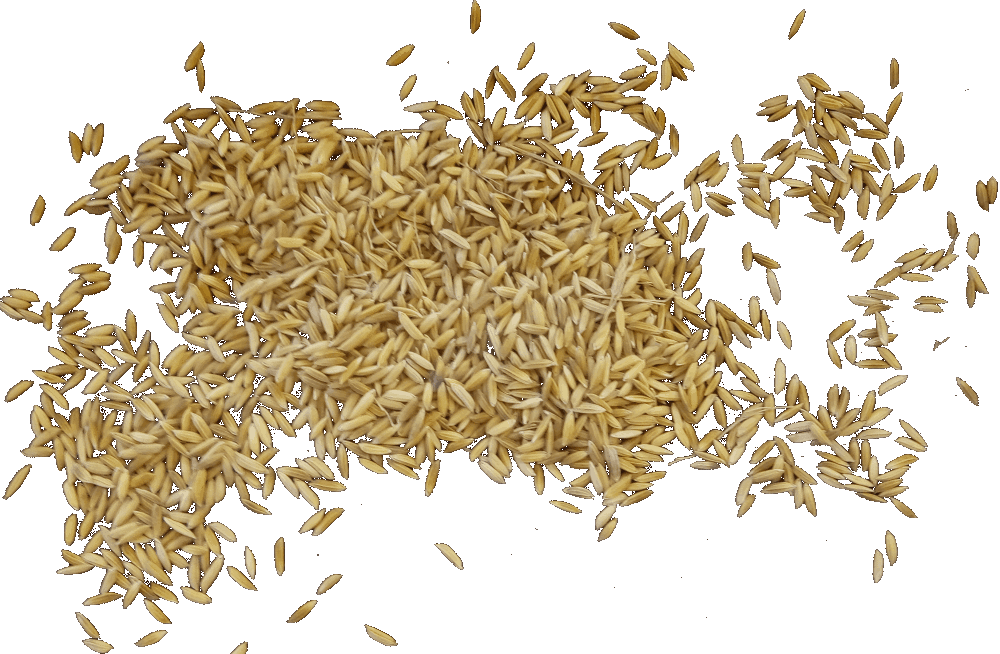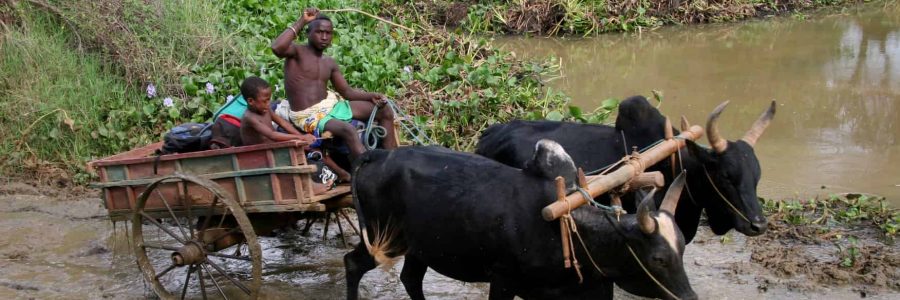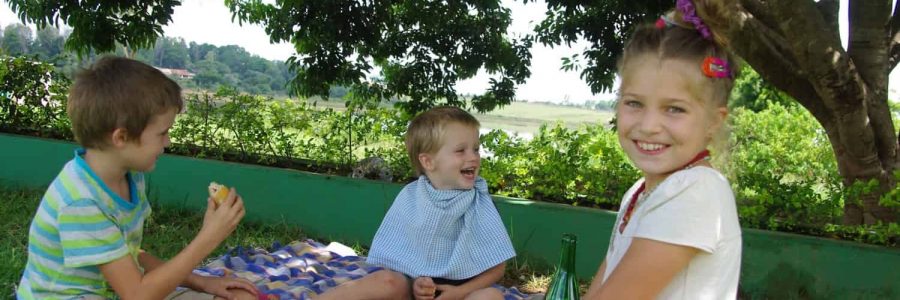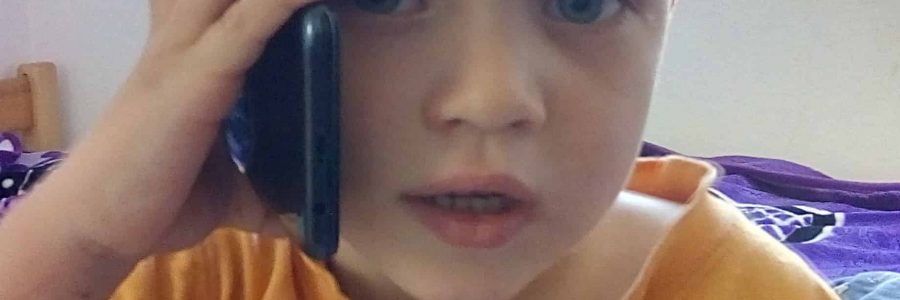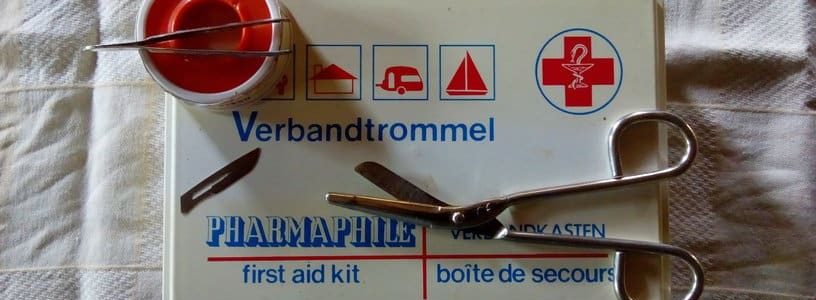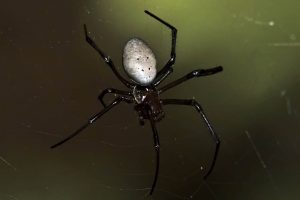You can download all translations here
Author: Jurgen & Katja
Live-Stream the 25th of May
Dear friends,
We are going live on the 25th of May 2020!!
Tune in on YouTube at 20:00pm (CEST):
https://www.jurgenenkatja.nl/live-stream-2020
We invite you to join us… However, the stream will be Dutch spoken. All the more reason to pick up your language learning again 😉
Still, you might have some questions. Just send them to us and we’ll try to answer you during the stream (English questions receive an English answers):
jurgenkatja.live@gmail.com
We hope to ‘see’ you then.
Video
41 Bible stories in Malagasy-Antanala (district Mananjary) in video format (MKV with chapters) 492.1 mb.
Pictures
The pictures that are used alongside the stories.
Audio Recordings
Audio Recordings of the 41 Bible stories.
41 Bible stories
41 Bijbel verhalen in Malagasy-Antanala (district Mananjary) with Dutch translation, PDF 1.9 mb.
41 Bible stories
41 Bible stories in Malagasy-Antanala (district Mananjary) PDF 1.8 mb.
Home education tips
The Corona virus is spreading and everybody needs to stay at home.
Working and learning at home can be a challenge. With the ungoing crisis we thought it is time for some home education tips.
You can read our tips on Facebook as well.
Tip #1 – Home is not a school (31-03-2020)
Tip #2 – Little ones first! (01-04-2020)
Tip #3 – A schedule is good, a rhythm better (02-04-2020)
Tip #4 – We do the chores together! (03-04-2020)
Tip #5 – You Don’t Have to be an Expert (06-04-2020)
Tip #6 – Make Use of the Concentration Peak (07-04-2020)
Tip #7 – Read With and To Your Child (07-04-2020)
Tip #8 – Grace and Mercy are the Winning Team (14-04-2020)
Tip #9 – Play! (15-04-2020)
Tip #10 – A Love for Learning (17-04-2020)
Tip #1 – Home is not a school (31-03-2020)
Many home educators prefer the term ‘home education’ over ‘homeschooling’. Education at home does not turn your home into a school. Relax: home education starts with home. So take time to think and talk about what makes a home: What defines us as a family? What traditions are in place? Should we start some new ones? HOME is the firm foundation for successful home education. And even you feel not much education is going on: at least you are giving your children a gift beyond measure: home.
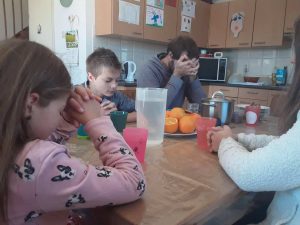
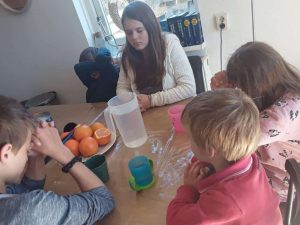
Tip #2 – Little Ones First (01-04-2020)
Helping older children with their work while little ones keep you perfectly distracted is very frustrating. That’s why it’s a good idea to spend time with your pre-schoolers first. We love reading together, but a game or some other activity with mom or dad is fine too. After about half an hour of filling their ‘love tanks’ with your kind attention, they are ready to play on their own; freeing you to help older ones. Personally I enjoy this way of starting the day very much: it’s easy, enjoyable and comes with great rewards.
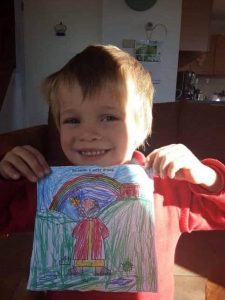
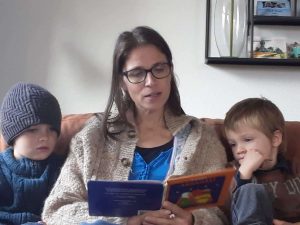
Tip #3 – A schedule is good, a rhythm better (02-04-2020)
A timed schedule for the day looks very professional indeed … until real life kicks in and interruptions great and small mock your beautiful plans. We use a rhythm instead. A rhythm – or set order of activities – allows for structure and serendipity alike. As long as I don’t plan too many subjects things get done in a happy way. For example our mornings follow this rhythm: breakfast – reading aloud to young ones – maths – languages – sometimes science – lunch. Whatever gets done we consider a morning well spent. Happy planning everyone!
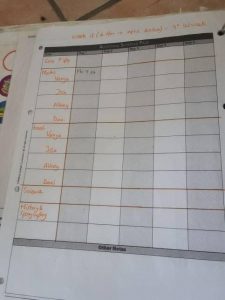
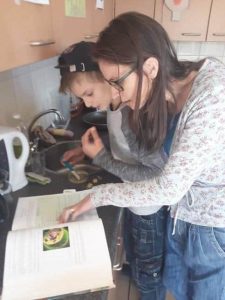
Tip #4 – We do the chores together! (03-04-2020)
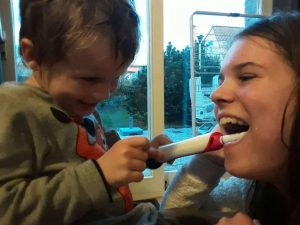 For parents home education takes a lot of (extra) time. No problem though: the children can help! Teens can cook and clean well and even a toddler can help clear away the dishes. Having the children do (more) chores not only frees the parents to home educate, but also gives children a sense of responsibility and belonging. The children might grumble and complain a bit in the beginning, but with the necessary compliments for a job well done they are sure to grow into it. 😀
For parents home education takes a lot of (extra) time. No problem though: the children can help! Teens can cook and clean well and even a toddler can help clear away the dishes. Having the children do (more) chores not only frees the parents to home educate, but also gives children a sense of responsibility and belonging. The children might grumble and complain a bit in the beginning, but with the necessary compliments for a job well done they are sure to grow into it. 😀
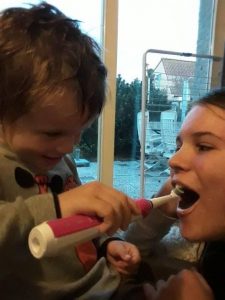
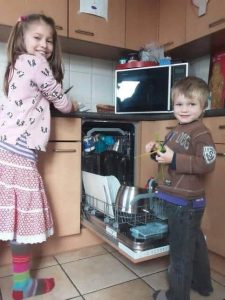
Tip #5 – You Don’t Have to be an Expert (06-04-2020)
‘Mom, when can I use a semicolon?’ or ‘Dad, how do I calculate the circumference of an ellipse?’ Please don’t panic: you don’t have to be an expert to home educate! Willingness to find the answers together is enough. In this day and age it is easy to find information about most anything online. Visit a book or website together or watch a video. Questions are a great opportunity to learn alongside your child and/or teach him or her research skills. After some practice your child will grow in confidence as she is able to find answers herself. Her attitude is sure to change from ‘No idea’ to ‘I’ll look it up!’ 🤓
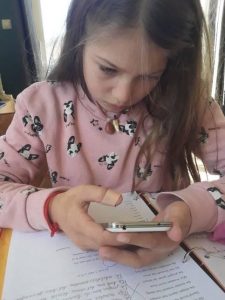
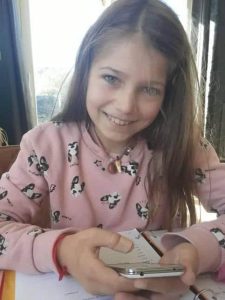
Tip #6 – Make Use of the Concentration Peak (07-04-2020)
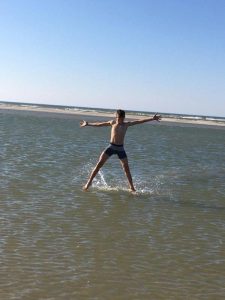 Much research has been done to discover the best time of day for learning tasks. For most of us the best time to concentrate deeply is in the morning around 10. Find out what subject requires most of your child’s attention and let him sit down to it around 10 am for the best results. If 10 am is a particularly unsuitable time, you can alternatively choose for one a half hour after lunch or supper, although our concentration peak is somewhat lower at those times of day. Happy studying!
Much research has been done to discover the best time of day for learning tasks. For most of us the best time to concentrate deeply is in the morning around 10. Find out what subject requires most of your child’s attention and let him sit down to it around 10 am for the best results. If 10 am is a particularly unsuitable time, you can alternatively choose for one a half hour after lunch or supper, although our concentration peak is somewhat lower at those times of day. Happy studying!
Tip #7 – Read With and To Your Child (09-04-2020)
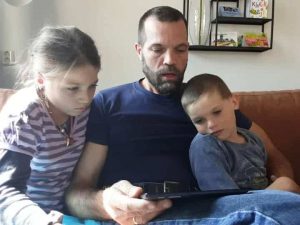 Reading is key to all further learning and paticipation in society. The ability to read is one of the most precious gifts you can give to your child. Therefore: read to your child, at least until he can read fluently himself (longer is allowed 😀). Enjoying books together whets your child’s appetite for reading, gives him a feel for language and builds his vocabulary. Secondly, have your beginning reader read to you daily – also at least until he reads fluently. Don’t be surprised if this takes long: 10 years or older is no exception for reading fluency. Reading together is one of the best investments in your child’s future.
Reading is key to all further learning and paticipation in society. The ability to read is one of the most precious gifts you can give to your child. Therefore: read to your child, at least until he can read fluently himself (longer is allowed 😀). Enjoying books together whets your child’s appetite for reading, gives him a feel for language and builds his vocabulary. Secondly, have your beginning reader read to you daily – also at least until he reads fluently. Don’t be surprised if this takes long: 10 years or older is no exception for reading fluency. Reading together is one of the best investments in your child’s future.
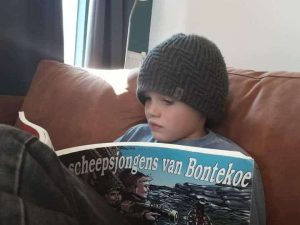
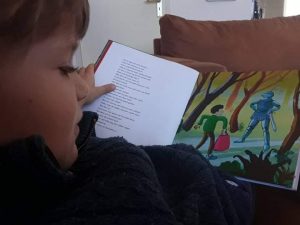
Tip #8 – Grace and Mercy are the Winning Team (14-04-2020)
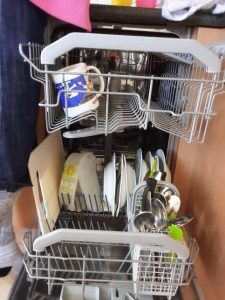 Home Educators need grace and mercy in abundance.
Home Educators need grace and mercy in abundance.
Home education means you spend a lot of time together as a family. You share moments of joy, but also of chagrin and frustration. Especially then words of grace are needed. Words that say: ‘You can try again, don’t worry if you don’t understand or if you take a long time to learn.’ Words that don’t compare and hurt, but instead forgive and give a second chance – over and over again. Words that communicate a deep and profound love for your child and patience to see him or her blossom.
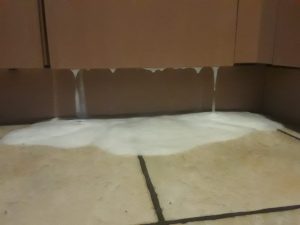 This is what happens when someone puts ‘just a little to much’ soap in the dishwasher…
This is what happens when someone puts ‘just a little to much’ soap in the dishwasher…
Tip #9 – Play! (15-04-2020)
Learning does not just happen sitting at a desk with a book and a notepad and pencil in hand. Learning happens in many different ways, amongst which is play. Play itself comes in many varieties: can be done in- or outside, can be physical or mental (even musical!), done alone or together and provides a good break from formal learning. Research shows that playing makes learning outcomes better. So, if you like your child to be a succesful learner: let him play!
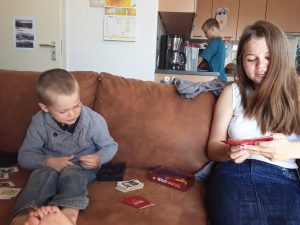
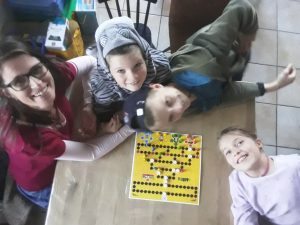
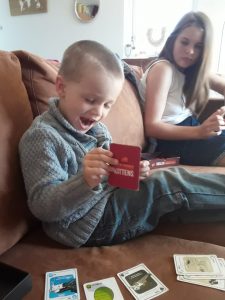
Tip #10 – A Love for Learning (17-04-2020)
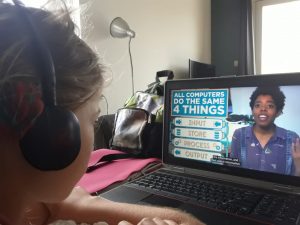 There seems to be no end to what can be learned. In the primary years we focus on reading, writing and arithmetic to use them later as tools for further studies. Once we gain an appetite for learning, the possibilities are manifold: we can learn a new hobby or game, taķe an online course, learn a language … Learning can be enjoyed by young and old, gives us healthy challenges and provides stimulation. So what would you like to learn – or teach your child – today?
There seems to be no end to what can be learned. In the primary years we focus on reading, writing and arithmetic to use them later as tools for further studies. Once we gain an appetite for learning, the possibilities are manifold: we can learn a new hobby or game, taķe an online course, learn a language … Learning can be enjoyed by young and old, gives us healthy challenges and provides stimulation. So what would you like to learn – or teach your child – today?
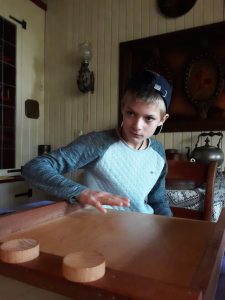
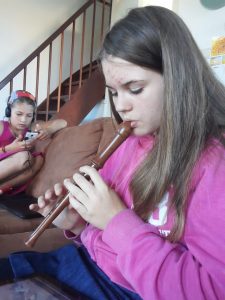
Close Yet Far Away
Well, here we are. Finally back in the Netherlands. Furlough at last. Enjoying all the luxury and do things that are otherwise impossible. Going to the theater; cinema; visiting family and friends; giving presentations and sermons; to the swimmingpool; museums and so on. But no, instead of nice and relax conversations, we are mainly talking about the miserable pandemic caused by Covit-19 (SARS-CoV-2) or the Corona virus. A virus from a family which was not unknown, but in the past was only limited to the Asian regions.
How we feel? That is a regularly asked question. Well, disappointed of course! Sad too. Both Katja’s parents and mine (Jurgen) all are close to their 80s and are at risk because of their health. At the time of writing, they are doing well and we are grateful for that. But what a sad situation for so many others.
We, as a missionary family, are not unknown to the life style we have now. We live fairly isolated in Maroamboka and are therefore somewhat used to it. Homeschooling? Not new to us. Not just going to the supermarket for a small thing? Not strange either. Sitting in the house for days? This is the rule during the rainy season. No toilet paper? … We don’t even have that in Maroamboka.
But for many fellow Dutch nationals. A sense of panic, powerlessness and disillusionment. In Holland we were no longer used to this kind of life. Now what? Everything that was so common is no longer possible. Writing and reading messages on your smartphone all day long is getting boring as well. What if I get the virus too?
Nevertheless, we consider ourselves lucky that we are in the Netherlands at this moment. Things are well organised here. Health care is given top priority. The social safety net for victims can take many blows. If one gets sick, one can get the care one needs. We can also just go shopping and, if everyone behaves normally, there will be enough. Our Prime minister Rutte said: “There is enough [toilet paper], we can [all] poop for ten more years”. In otherwords: Behave!
Of course we follow the situation on Madagascar with sorrow and concern in our hearts. How different it is there! Social distance? Wow, have you ever been to the market in a random town. Or have you ever seen how people live? Most homes in large cities are not affordable, so the whole family lives in one room. There, in that room, they can sleep and shelter during the rain, but locked up together all day brings greater dangers than Corona. Everything and everybody is social in Madagascar. It is unfair to say that they should stop doing that for a while. That would be like banning private internet use in Europe or any other strong economy country for that matter. Let that idea sink in for a while.
Last night we read the press release from President Rajoelina. Many people think of him as a big crook. But now it seems that this crook takes Corona very seriously. 12 infected people are now known and all have been isolated. Unprecedented measures have been taken. The capital, Antananarivo, and the large port, Tamatave, are completely locked down. No public transport; health checkpoints; all small shops and markets closed; people are only allowed to shop in their own neighborhood (1 person per household); forbidden to go outside between 20:00 and 05:00; food prices have been frozen under penalty of a fine. President Rajoelina addresses the people every night. At 20:00 on the national channel, the Malagasy can stay informed about the current situation. Madagascar is no stranger to epidemics. Epidemics such as, the almost annual, outbreaks of the plague. Let’s pray that the government can also curb this epidemic.
Our heart goes out to the Malagasy. Because of the (often) bad conditions in which people live, even young people are vunerable. They look strong. They carry 50kg of rice on their shoulders. But one-sided nutrition and unhygienic homes plagued by rats and parasites are a recipe for a weak immune system. In addition, many Malagasy are simply terrified and have a very fatalistic attitude. Too often we hear it said by our Malagasy friends: “Well, that’s the way it is. The Malagasy just die quickly.” How it hurts us when they speak like that. How we would like to see them standing tall in life. That they would realise how much they can do to change their ‘fate’ themselves. And above all, that they would realise that the Almighty is not far away but has come to the world to save her. Saving from Corona? Saving from the plague? Possibly, but I’m more thinking about the boldness that comes with the confidence that Jesus saved you for eternity. Below, a quote from Martin Luther in a time when the plague went around Europe like a roaring lion, devouring who it could devour:
“I shall ask God mercifully to protect us. Then I shall fumigate, help purify the air, administer medicine and take it. I shall avoid places and persons where my presence is not needed in order not to become contaminated and thus perchance inflict and pollute others and so cause their death as a result of my negligence. If God should wish to take me He will surely find me and I have done what He has expected of me and so I am not responsible for either my own death or the death of others. If my neighbour needs me however I shall not avoid place or person I shall go freely as stated above. See this is such a God-fearing faith because it is neither brash nor foolhardy and does not tempt God.”
Luther’s Works; Vol. 43, pg. 132
Creepy Crawlers
At first we wanted to write a post about all the nice fruits we eat every day. A life to dream about. Fruit in abundance, sunshine, and a porch on which you can sit at sunset with a nice glass of wine. Mmmm, nope not really. Fruit, yes; sunshine, yes; and yes, also a porch. Romantic? No, unless you want to hide under a mosquito net.
We admit, we love the sunshine (if it is not too hot, that is). We enjoy the spacious porch for the children to play on. It becomes more bothering if you need to pay attention to all the bugs. During the day we have the tiger-mosquitoes and during the night the mosquitoes species which give you Malaria. Than, the spiders.
At the moment our porch is home of a huge one. Her bite, we’ve been told, is just as painful as a sting of a scorpion (yes, we have those too). We have a love/hate relation with the spider. She keeps the mosquitoes and other flying stingy critters at bay.
Another annoying bug is the sand-flea (jigger). This bug crawls under your skin (literally) and lays it eggs there while feeding on your blood. The children all had their share and this time it was Jurgen’s turn. Two of these ‘cute’ creatures dug a nice hole in his little toe. The trick is to remove them completely with egg-sag still attached. Simple starting to dig in with a needle is a bad idea. Most likely the egg-sag will get damaged and will cause a mess. Slowly cutting open the skin around the sag works best. The first one on Jurgen’s toe came out as a whole, the second one tore open but still came out reasonably well. With the egg-sag still attached, the sand-flea could be studied under the mini-microscope. It gave the children a nice chance to see it up close. It was hard to get a focus as the sand-flea constantly tried to move away from the light.
To live here has its advantages when it come to learning or experiencing new stuff… Whether you always want to learn these things is a whole other matter.
For all of you who would like to see the animal we have a little video:
We have place some picture below.
BUT, BE WARNED! THE PICTURE ARE GRAPHIC. YEP, BLOOD IS INCLUDED.
Only scroll down if you don’t mind seeing blood!
.
.
.
.
.
.
.
.
.
.
.

